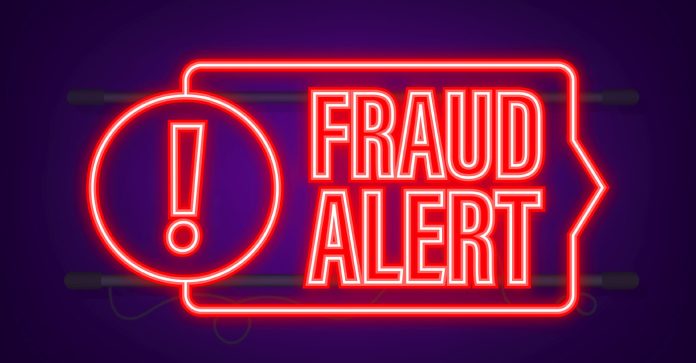
By Allison Morrow and CNN Business, The Atlanta Voice
Zelle, the popular payment app, is under fire for how it handles (or rather, doesn’t handle) fraud and scams that have exploded on the platform in recent years.
The New York Times called Zelle out in two reports earlier this year. That grabbed the attention of US senators, who pressed the CEOs of the nation’s large banks that own the platform in hearings last month and began an investigation into the service.
Here’s the deal: On Monday, Senator Elizabeth Warren’s office said its investigation into Zelle showed that fraud and theft are not only rampant but getting worse. And once people report fraudulent transactions, banks are reimbursing only a small fraction of the swindled customers.
“Big banks own and profit from Zelle but are failing to make their customers whole for both authorized and unauthorized fraudulent activity on the platform, despite their claims that it is safe,” Warren’s office wrote.
Key things to know:
- Zelle (rhymes with “tell”) was created in 2017 as the banking industry’s answer to Venmo and Cash App.
- The fintech companies behind those apps were doing what big banks had failed to do for decades — make transferring money to your friend who just paid for dinner easy and free and fast.
- So the big banks got together and created Zelle, which was lame and almost no one used it till around 2020, when digital payments took off in response to the pandemic.
- Zelle is now by far the largest peer-to-peer payment system in America. Last year, according to Zelle, transactions totaled $490 billion, up 59% from the year before. (PayPal-owned Venmo, its closest rival, handled $230 billion.)
- The service is operated by Early Warning Systems, a fintech company owned by seven of the US’s largest banks.
Naturally, where the internet and money collide is where scammers get to work.
Zelle’s size and accessibility — it’s built right into participating banks’ apps — make it the “preferred tool of fraudsters and other bad actors,” according to the report from Warren’s office.
Among the investigation’s key findings, which corroborate anecdotal evidence reported by the Times:
Banks are not repaying 90% of cases in which customers were tricked into making payments on Zelle.
An estimated $440 million was lost by Zelle users through frauds and scams in 2021. But banks “appear not to have provided sufficient recourse to their customers.”
“Authorized” vs “Unauthorized:” Under a federal rule known as Regulation E, banks are technically only liable to cover fraudulent activity when it involves “unauthorized” transactions. Say, when someone steals your credit card and makes purchases without your permission. But if someone persuades you to send them $500 through a phishing scam, banks consider that “authorized” and won’t reimburse those funds.
BUT… The bank data reviewed by Warren’s office suggest even the bulk of unauthorized cases are going unpaid. For example: PNC Bank indicated that its customers reported 10,683 cases of unauthorized payments totaling over $10.6 million. It refunded only 1,495 cases, totaling $1.46 million.
Zelle sought to downplay the report and didn’t specifically address Warren’s allegations Monday. In a statement, the company said: “Tens of millions of consumers use Zelle without incident, with more than 99.9% of payments completed without any report of fraud or scam,” adding that the proportion of fraud and scams has steadily decreased as its user numbers have climbed.
The Bank Policy Institute, a banking industry group, also disputed Warren’s findings and claimed that Zelle’s rivals Venmo and CashApp receive more reports of disputed transactions.
“Zelle is the safest peer-to-peer network,” it said in a statement Monday. “For any real discussion of online fraud, the focus belongs elsewhere.”
BOTTOM LINE
It’s kind of crazy to remember how anyone moved money among friends before the advent of payment apps. Did I actually carry cash with me? On the first every month did I take my little checkbook out and literally write out my portion of the rent on a magic slip of paper and then just hand it to my roommates? Wild. It would not surprise me if the original idea for a payments app came from a restaurant server who was fed up with splitting bills unevenly across eight different cards.
But that’s the pre-internet world Regulation E was made for. It’s a 1978 rule that only got a 21st century electronic payments update by the Consumer Financial Protection Bureau late last year. It wasn’t made for the world of instant payments, and could hardly have envisioned how easy the internet would make it to swindle people out of their money.
Warren’s report on Zelle could add pressure on regulators including the CFPB to update its guidance.
“Given this uncertain landscape and the banks’ abdication of responsibility, regulatory clarity is needed to further protect Zelle users,” researchers wrote in the report, noting that the CFPB has regulatory authority over peer-to-peer platforms including Zelle.
_____
The post Zelle fraud is rising. And banks aren’t coming to the rescue appeared first on The Atlanta Voice.


